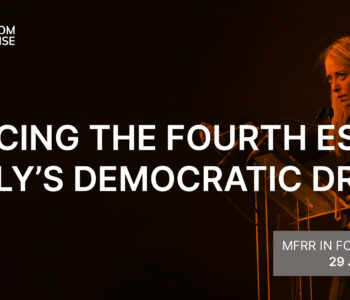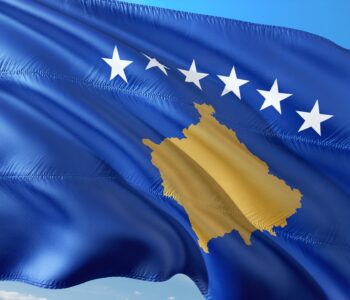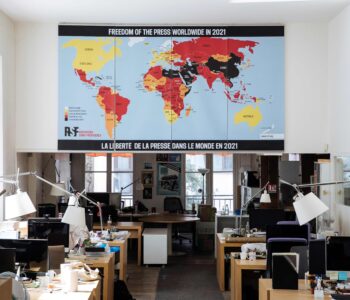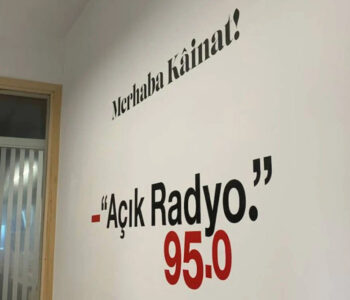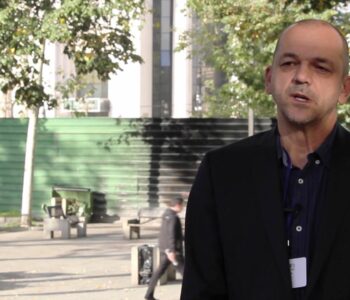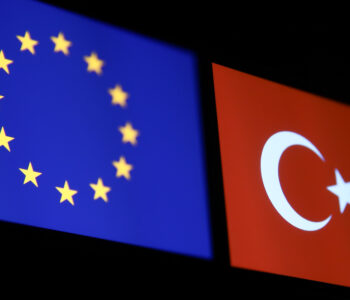
Bulgaria: Serious threat against investigative journalist Atanas Tchobanov
New government must prioritize journalist safety and media freedom. The IPI global network today expresses serious concern over the warning received by one of Bulgaria’s most prominent investigative journalists, Atanas Tchobanov, about an immediate threat to his life. IPI urges Bulgarian authorities to thoroughly investigate the threat, take all necessary measures to protect his safety and ensure those responsible are swiftly identified.
On 7 January 2021, Tchobanov, co-founder of the Bulgarian investigative website Bivol and director of the Bureau of Investigative Reporting and Data (BIRD), received a phone call from an official at a foreign embassy under a “duty to inform” procedure, who warned him about information the official had received concerning a credible and immediate threat to Tchobanov’s physical safety.
Tchobanov, a well-known journalist who is based in Paris, was told the threat came from within Bulgarian territory but did not receive specific information about the nature of the danger he was in or who was responsible. The tip off came one day after he made phone calls to figures named in a major investigative story he was working on at the time.
The journalist believes the threat was related to a story he published on January 9 – “Lobbyist Tony Podesta serves businesses related to Peevski” – which revealed lobbying deals struck between influential U.S. Democratic Party lobbyist Anthony Podesta and Bulgarian companies whose owners are linked to the interests of Bulgarian oligarch and political Delyan Peevski, who is sanctioned under the U.S. Magnitsky Act.
As part of his investigation with colleague Dimitar Stoyanov, Tchobanov contacted figures working with Podesta in Bulgaria seeking comment. The very next day, he received the information about the threat. Speaking to media, Tchobanov said he believed the threat was directed from certain figures within the National Assembly.
#Bulgaria: IPI urges authorities to thoroughly investigate the threat against Atanas Tchobanov, take all necessary measures to protect his & his colleague’s safety & ensure those responsible are swiftly identified.
Full statement⬇️@BivolBg @OCCRP @birdbg2https://t.co/cUa6yrEBEg
— IPI-The Global Network for Independent Journalism (@globalfreemedia) January 12, 2022
On January 10, the journalist filed a statement with French police. Over the weekend he also reported the threat to Bulgarian authorities. Tchobanov was contacted by the state prosecutor’s office to provide information about his allegations. However, he declined, citing concerns about links of those within the prosecutor’s office to those he suspects were behind the threat.
On Monday, the Bulgarian Ministry of Interior, the General Directorate for Combating Organized Crime, the General Directorate of the National Police, the Sofia Directorate of the Interior, the State Intelligence Agency (SANS), and the Military Intelligence Service were informed about the threat by the prosecutor’s office. However, Bulgarian authorities have not commented publicly on the issue.
“Atanas Tchobanov is one of the finest investigative journalists in Bulgaria and has worked on numerous global investigative projects”, IPI Deputy Director Scott Griffen said. “This warning about a threat to life is extremely concerning, as it would not have been made unless there were serious immediate risks to his safety. This underscores both the major risks journalists probing crime and corruption routinely face in Bulgaria and the importance of duty-to-inform directives: vital instruments which should be deployed by more countries to help protect journalists.
Griffen added: “Bulgarian state authorities should make an immediate public statement to confirm an investigation has been opened to verify the threat and identify its source. All necessary measures should also be taken to ensure that the safety of both Atanas Tchobanov and his colleague in Bulgaria is guaranteed and that those behind the threat are identified and brought to justice.
“As the new government assumes power in Bulgaria, IPI also urges the administration to prioritize improvement of media freedoms. A key element will be strengthening investigations into serious threats and attacks on journalists, which remain frequent, with unacceptable levels of impunity. Police accountability for violence against media workers has been virtually non-existent; legal harassment of outlets investigating the activities of powerful institutions is common; and journalists face restrictions on speaking with politicians and accessing information.
“Improvement of this situation will require significant political will from the government, public officials, prosecutors, and law enforcement authorities, as well as a broader recognition by Bulgarian authorities of the fundamental role that independent journalism plays in society. To address these challenges, IPI urges the government to commission an immediate independent review to examine the current state of media freedom in the country and to identify key challenges.”
This statement by IPI is part of the Media Freedom Rapid Response (MFRR), a Europe-wide mechanism which tracks, monitors and responds to violations of press and media freedom in EU Member States and Candidate Countries.

